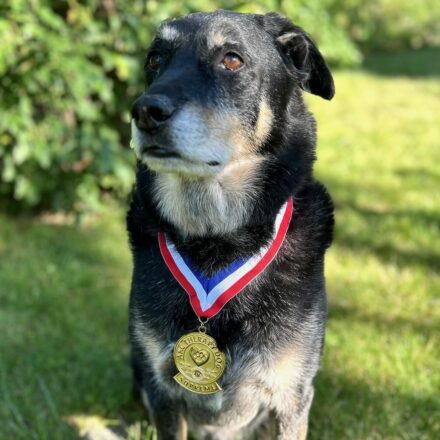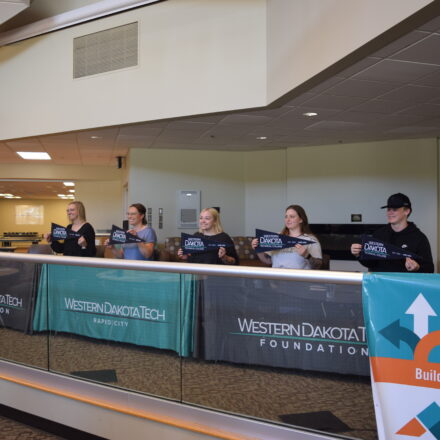Dr. Sanchez was amazing. He took the time to explain everything to my daughter and me. He was reassuring to both of us. He also took extra time to let her see her MRI when she asked to see her brain. Thank you for taking time in this busy world to place wonder and security in the heart of a young girl.

Caring for your child is one of the most important priorities in your life. It’s important to us, too. Monument Health specializes in caring for kids, from the usual bumps and bruises to complex challenges like diabetes and neurological issues.
Pediatricians and family medicine providers throughout Monument Health offer preventive care services such as well-child visits and immunizations, as well as care for a wide range of illnesses and chronic health conditions. With pediatric specialists across many departments, we can give your child the support she/he needs if specialized care is required.
If your child needs to be hospitalized, we provide high-quality care close to home. Monument Health Rapid City Hospital has a Neonatal Intensive Care Unit and a Pediatrics Unit complete with a play area to make your child’s stay as comfortable as possible.
Visitors to Monument Health Rapid City Hospital Women’s and Children’s Services will need to use a four-digit passcode to reach the Labor & Delivery, Mother Baby, Neonatal Intensive Care Unit (NICU) or Pediatric departments on the second and third floors near the hospital’s West Entrance elevators. The Children’s Miracle Network funded the project to keep our most vulnerable populations safe.
Upon check-in, the patient or their guardian will be given the passcode. They can share the passcode with friends and family members for visitation. The visitors will use the passcode to enter the Labor & Delivery, Mother Baby, NICU or Pediatric departments.
Our Services
Primary Care
Monument Health primary care providers specialize in taking care of your child’s overall health and well-being. They know your family and your child’s medical history best. As a parent or caregiver, you get to pick whether your child sees a primary care physician or a pediatrician. No matter which health care provider you choose, you can count on high-quality, well-coordinated care at Monument Health.
From birth through adolescence, your child’s health care provider sees them for preventive care services including well-child visits and immunizations, and also for illnesses, injuries, sports physicals and management of any ongoing health conditions.
Monument Health providers can manage all of your child’s care and can help you navigate the health care system, calling on hospital or pediatric specialty services, if needed.
We have pediatricians in Spearfish and Sturgis.
Specialty Care
If your child requires specialized care, we don’t want lengthy travel to add to those challenges. That’s why Monument Health is proud to offer pediatric expertise in many areas. Your primary care provider can refer you to a specialist in the following areas:
- Audiology
- Behavioral health
- Cleft Palate/craniofacial anomalies
- Critical care
- Dermatology
- Diabetes & endocrinology
- Ear, Nose & Throat
- Kidney care (Nephrology)
- Neonatal follow-up
- Neonatology
- Neurology
- Occupational therapy
- Oncology (Cancer) follow-up treatment
- Orthopedics
- Orthotics
- Palliative care
- Pediatric rehabilitation
- Physical therapy
- Podiatry
- Sleep medicine
- Speech therapy
- Sports medicine
- Surgery
- Urology
- Weight management
Hospital Care
Rapid City Hospital’s Pediatric Unit, Pediatric Intensive Care Unit (PICU) and Neonatal Intensive Care Unit (NICU) are here for you if your child requires hospitalization. Offering pediatric care for children up to 16 years of age, our 16-bed Pediatric Unit and 6-bed advanced care unit are the only specialized pediatric units in the Black Hills region, providing care to more than 350 patients each year.
The Pediatric and Pediatric ICU rooms provide extra space and sleeping chairs so you can stay nearby as your child receives care. We want to make your experience as comfortable as possible for the entire family. Please let us know if we can help with anything.
Conditions we treat
- Ear, nose and throat illness and surgery
- Endocrine conditions including diabetes
- Infections and immune system conditions
- Gastrointestinal (stomach and bowel) illness and surgery
- Neurologic (brain and spinal cord) illness and surgery
- Oncology (cancer) follow-up treatment
- Orthopedic (bone, muscle, and joint) injuries and surgery
- Poisoning and drug overdose
- Respiratory (lung) and breathing illness, including asthma and respiratory infections
- Trauma
- Urinary and bladder illness and surgery
- Other medical and surgical problems
Outpatient Pediatric Services
- Maintenance Chemotherapy Infusions
- Immunotherapy Infusions
- Injections
- Blood Administration
- IV Fluid Hydration
- Stimulation Testing
Visiting
Parents and guardians with children in the Neonatal Intensive Care Unit, the Pediatrics Department or the Emergency Department will be allowed to be with their child, one (1) at a time.
-
Prior to entering facilities, visitors will be screened for COVID-19 symptoms. If a visitor does not have their own mask one will be provided for the duration of the visit.
-
Visitors who do not pass the screening process will not be permitted entry to the facility.
-
Visitors are not permitted to use any common spaces, including the cafeteria and lounges. Visitors are required to comply with all safety protocols, including hand hygiene, masking, and physical distancing.
-
Visitors may be asked to wait outside if the waiting space cannot accommodate the number of people in the area and maintain physical distancing.
-
Visitation may be delayed or refused depending on care needs of the patient.
Frequently Asked Questions
How your child responds to hospitalization will depend on his or her age, development and past experiences. How you react may also affect your child. If your child asks a question, be honest with your answer. If you do not know the answer, tell your child you do not know and then ask your nurse, doctor or other health care team member for help.
Common responses based on your child’s age:
- Infants: Infants (newborn to 12 months) are often afraid of noise and strangers. Babies usually will calm with your voice and touch. Music, infant toys or mobiles may help distract or calm your infant.
- Toddlers: Toddlers (1 to 3 years) are often afraid to be alone and may also be afraid of strangers, darkness, loud noises, and big machines. Tell your child that it is OK to cry but that you will be there as much as possible. Use simple terms and special words. Toddlers like special toys and blankets from home and they enjoy stories or movies to help relieve some of their fears.
- Preschoolers: Preschoolers (3 to 5 years) may be afraid when you leave and may also be afraid of the dark, masks, and hospital equipment. Preschoolers want to know “why” things happen and will use their imaginations for answers. Be honest about tests and exams and use words that your child understands. Time “anchors” such as “after breakfast” will help explain when things will happen.
- School-age: School-aged (6 to 12 years) children can accept being apart from you. They are afraid of body harm, pain and the unknown. An illness or injury that makes them different from their friends causes stress. Encourage your child to ask questions. Use books and pictures to help explain the answers.
- Adolescents: Adolescents (13 to 18 years) have concerns about being different from their peers, pain, loss of control and the possibility of death. They want information and ask very specific questions. Answers should be complete and honest. Allow teenagers to make as many health care choices as possible.
- A favorite toy or blanket can provide comfort to your child.
- Pediatrics has a wide selection of movies for children and families to watch and each patient room has a VCR and a DVD player. Several video game players are also available along with video games.
- Older children and adolescents may prefer to listen to music or use their cell phones with parents’ permission.
- Your child may bring food from home if OK with his or her doctors and nurses.
- Vending machines in the family lounge and first floor cafeteria. View Rapid City Hospital map
- Coffee and juice for family members
- Nourish Cafe open daily from 6:30 a.m. to 10:30 p.m.
- Meal trays can be delivered to family members for $5 per meal
- Koffee at Kerry’s at the main entrance to the hospital
- Shower areas for family members; linens are provided
- A refrigerator is available for families
- An ATM machine is located in the lobby
- Wireless internet access throughout the hospital
- Free parking
- Parking valets are available at the main entrance

Doctors & Providers
Contact Us
What People Are Saying
Dr. Ulmer is wonderful! So detailed and kind! Her nurses are also great!
Dr. Sanders is an amazing doctor! She gives wonderful sound advice but also cares about her patients! Amazing experience!









